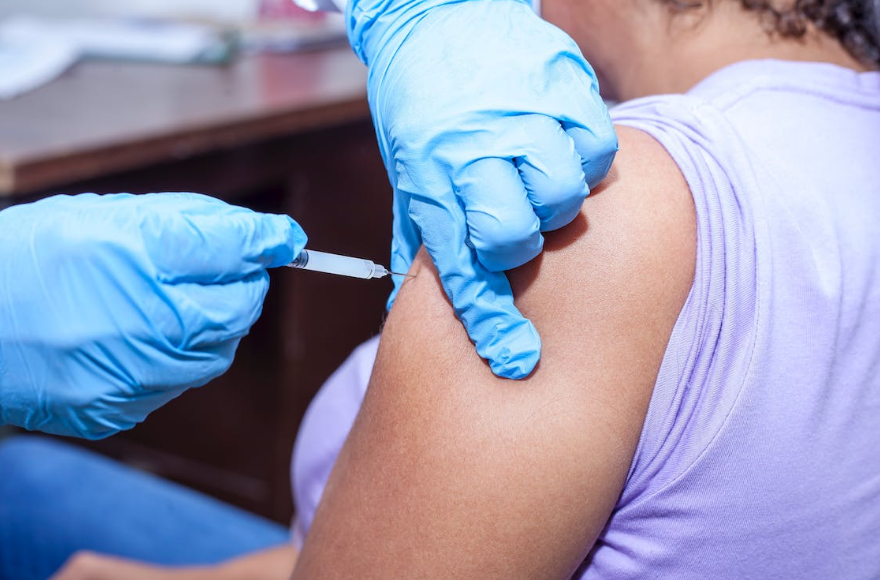"Well, it seemed like a good idea at the time," is a phrase that never bodes well in the aftermath of anything. It's a phrase steeped in regret. It implies that an action, decision or utterance, believed at one time to have held such promise, is in the aftermath, a huge debacle.
The mandated use of experimental COVID vaccines is already moving into this "it was a good idea at the time" category.
History holds other good examples. Do an online search of the phrase "it seemed like a good idea at the time," and you will find page after page of results for books, movies, and bad decisions that seemed spot-on when they began.
Here's one for you: In 1962 an up-and-coming rock and roll band auditioned for Decca Records in London. Decca executives were allegedly unimpressed, telling the band's manager, "We don't like your boys' sound. Guitar groups are on their way out." That band was the Beatles, who went on to sell over 2 billion albums worldwide. But hey, it seemed like a good idea at the time.
In 1876, William Orten was president of Western Union. His telegraph company had a lock on communications technology when Orten was offered the patent for Alexander Graham Bell's telephone. But Orten thought the telephone was ridiculous, telling Bell, "After careful consideration of your invention, while it is a very interesting novelty, we have come to the conclusion that it has no commercial possibilities… What use could this company make of an electrical toy?" You know how that story ended. And yes, it was a good idea at the time.
History is replete with ridiculously bad decisions that cost someone, or some company, countless opportunities and boundless riches. Much worse are the decisions that notoriously and negatively impacted actual lives—sometimes large numbers of lives—even to the point of death.
An ongoing mission during the Vietnam War, codenamed "Operation Ranch Hand," is one example. Between 1962 to 1971, the U.S. military sprayed over 13 million gallons of Agent Orange, a highly toxic defoliant designed to deny the enemy the use of crops and jungles. The actual legacy of Ranch Hand was its negative effect on people. Rashes, cancer, diabetes, birth defects, heart disease, and many other debilitating illnesses were reported over time. A 1988 testimony revealed that no thought was given to its effects on U.S. personnel when Operation Ranch Hand was initiated. My own father, a veteran of two highly decorated tours in Vietnam died in 2013 from complications related to Agent Orange exposure. You can bet that someone somewhere thought Ranch Hand was a great idea at the time.
I'll give you one more, and this gets personal. When the Global War on Terror began, I immediately mobilized to Fort Bragg, NC. In the mobilization process, we were given Mefloquine, an anti-malarial drug taken in pill form once a week. I took it religiously and didn't get malaria. But the vivid and disturbing dreams were something else, and the physical side effects stayed with me well after deployment, including lack of energy, lack of strength—I couldn't run a mile without getting winded—and a year's diagnosis of hypoglycemia. Compared to others, I had it good. Reports began surfacing about the delusions and personality disorders some Mefloquine users experienced. Multiple servicemembers committed suicide and even murder based on delusional thoughts that were later believed to be after-effects of Mefloquine. In 2013 the U.S. military quietly banned further use of Mefloquine. But hey, it was a really, really good idea at the time.
I say all of this to illustrate that we have a right to question COVID vaccines, and that right is based not just on freedom of speech but also on the simple fact that history shows that people make stupid decisions about things that negatively affect others all the time.
I've said all along that if an individual chooses to get the COVID vaccine, they should make their own healthcare decision in concert with their personal medical provider. But where this whole thing went sideways was when someone in government decided it was such a "good idea at the time" to mandate that everyone participate in the joys of the COVID jab. If you questioned the efficacy or the need, you were literally questioning science. Yet, this past week, the CDC finally had the wherewithal to indicate that studies are needed to investigate the unusual increase in heart-related conditions among those who took certain vaccinations and/or boosters.
I'm not a doctor. I'm not a scientist. I'm just a guy — a guy who lost his dad to Agent Orange and over a year of his own life to Mefloquine, and I'm tired of being told that it was a really good idea at the time to mandate that everyone jump on the COVID vaccine bandwagon or risk being a modern-day leper, unable to walk freely through society.
But hey, it was a really good idea at the time.
To contact Phil or request him for a speaking engagement, go to www.rightsideradio.org. The views and opinions expressed here are those of the author and do not necessarily reflect the policy or position of 1819 News. To comment, please send an email with your name and contact information to Commentary@1819News.com.
Don't miss out! Subscribe to our newsletter and get our top stories every weekday morning.










